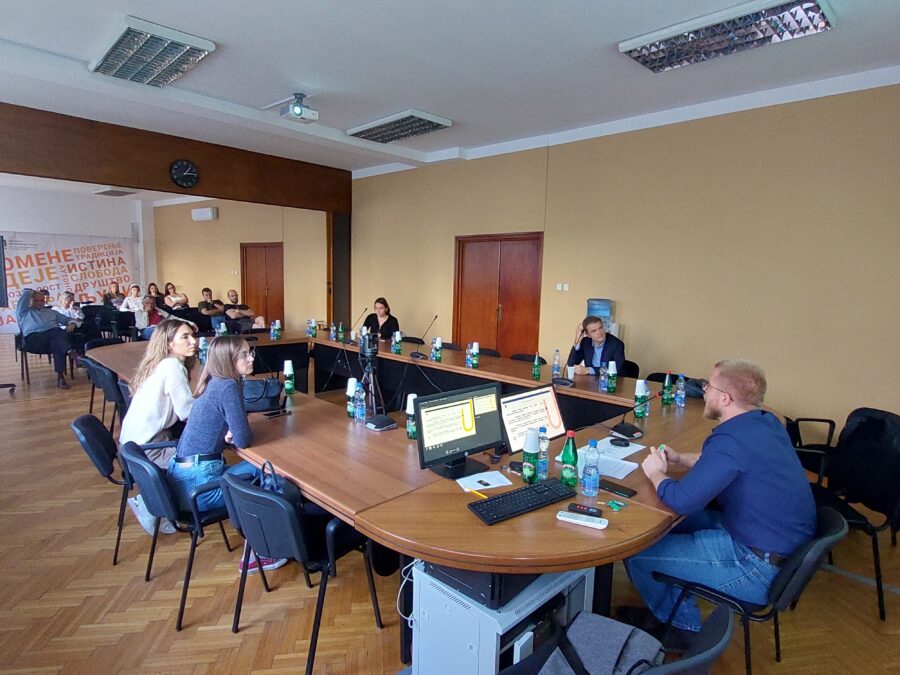As part of the cycle of lectures by new researchers at the Institute of Social Sciences, Njegoš Vujadinović, a Researcher Trainee from the Centre for Sociological and Anthropological Research, held a lecture on October 30, 2023 in the Great Hall of the Institute of Social Sciences on the topic „Neoliberal Orthodoxy and Orthodox neoliberalism: the case of Serbia”.
The lecture was devoted a comparative analysis of the commodification of religion in the United States of America and the Republic of Serbia. Through the initial analysis of the development of neoliberalism and capitalism, an attempt is made to explain the framework in which it will be possible to more clearly follow the emergence of the commodification of religion as a specific occurrence and phenomenon within a wider global context. Primarily, in the introductory part of the lecture, the commodification of religion in the USA was pointed out, considering the relevance and number of such researches. It was emphasized that neoliberalism essentially represents the extension of market dominance to all spheres of social life; in culture, it means unrestrained marketing and commodification of everyday life, including the intimate sphere. The commodification of religion in the USA is present in the media, on film, in literary works, etc.
During the lecture, the analysis of the complex relationship between the market and religion in the USA can help in monitoring possible imitations of such tendencies on a much smaller and rather more homogeneous soil such as Serbia. In contrast to the USA, in Serbia the process of desecularization took off at the end of the 20th and the beginning of the 21st century. It was pointed out that contemporary Orthodoxy accepts globalization in the technical and economic sense, but not in the ideological sense. In that sense, the commodification of religion is carried out “inside” through the economy, as well as through market – symbolic exchange.
At the end of the lecture, it was stated that countries in which there is a free market and freedom from official religious authorities (institutions) necessarily imply the creation of a branched network of religious movements that are formed according to individual wishes and needs.

